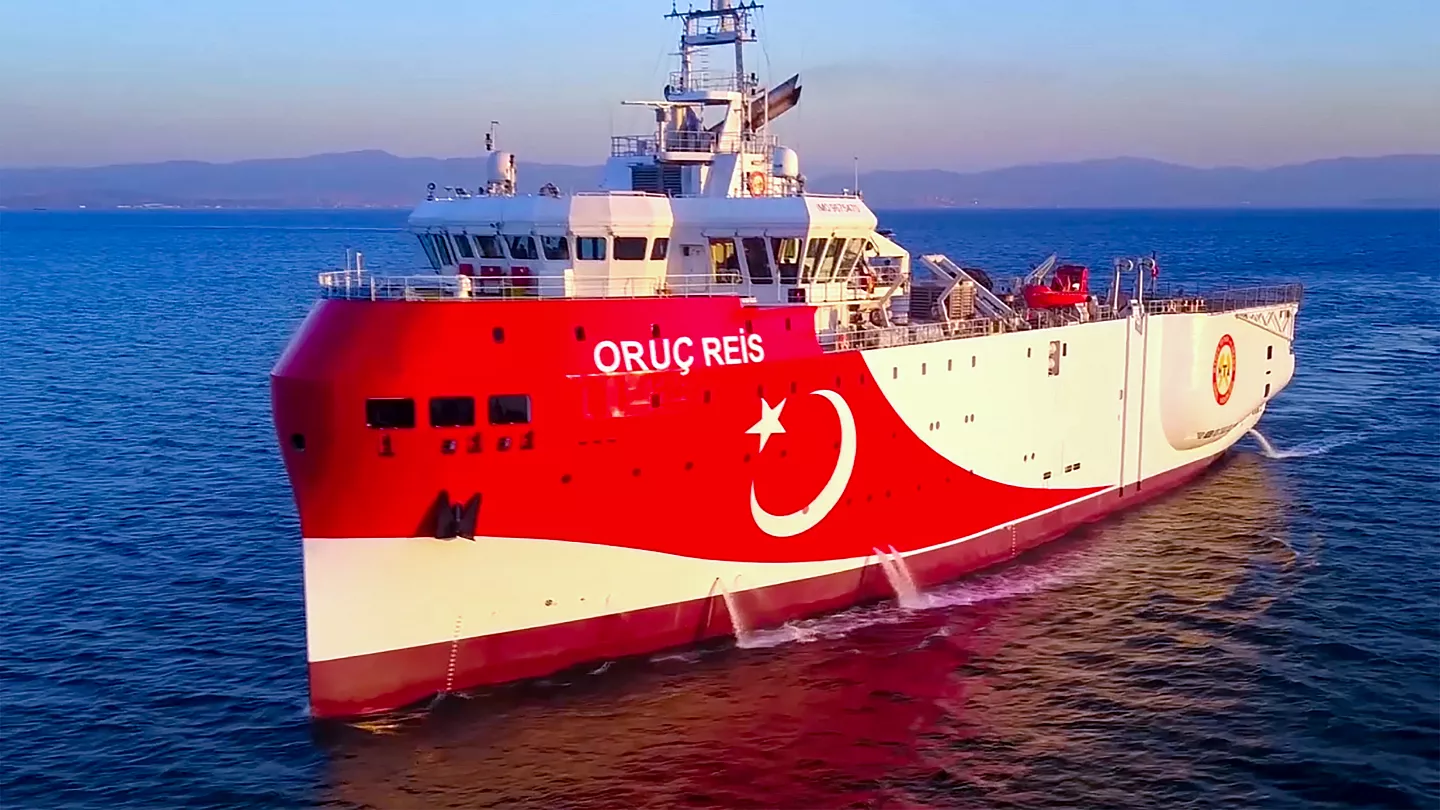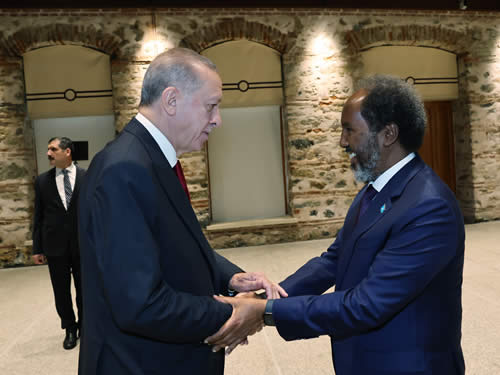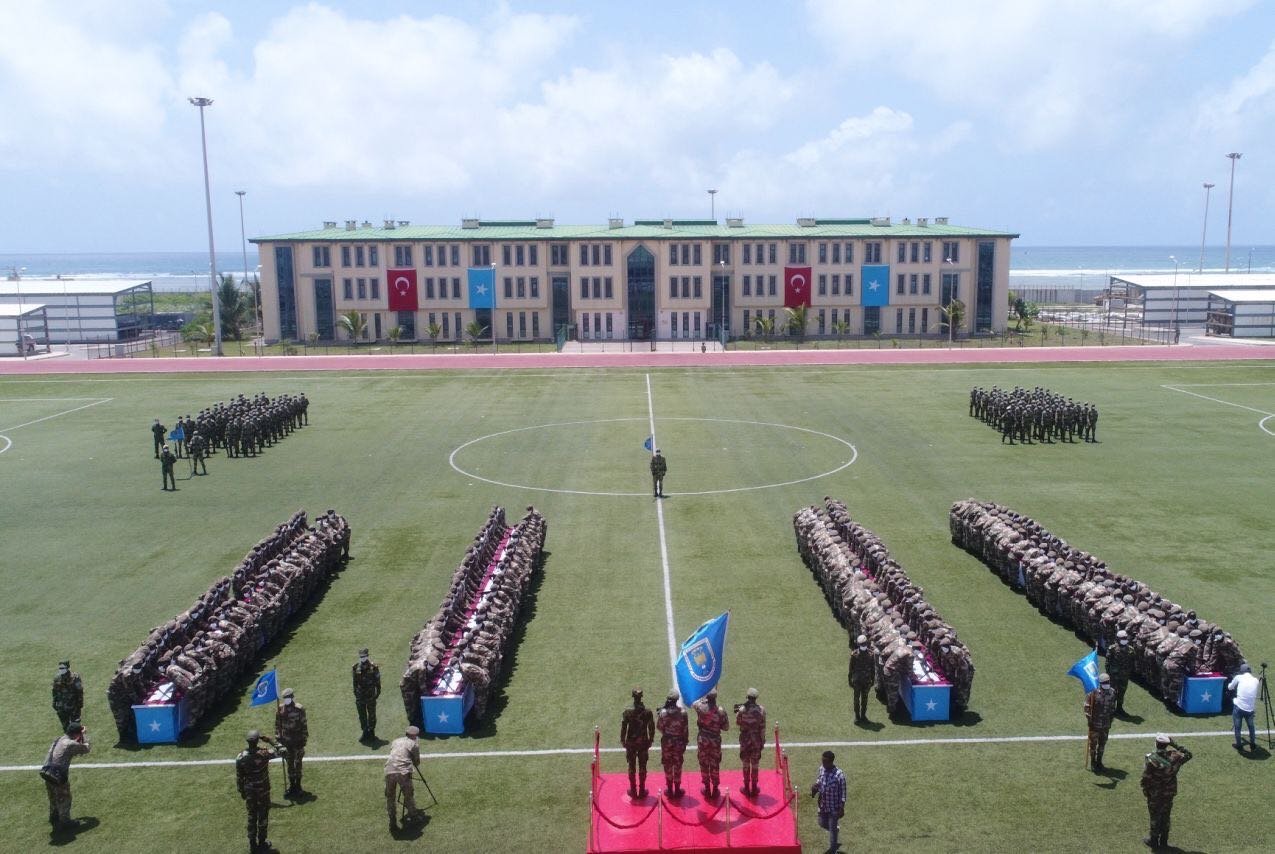Levent Kenez/Stockholm
Turkey plans to begin oil and gas exploration in Somali waters in September under an energy agreement signed on February 8, 2024. Additionally, in response to the need to ensure the security of ships and a request from the Somali government, Turkey is preparing to send additional military personnel to the country.
Turkey’s Energy Minister Alparslan Bayraktar announced on July 19 that the Turkish Petroleum Corporation (TPAO) and the Somali Petroleum Authority signed a hydrocarbon exploration and production agreement. The announcement was made after an inter-delegation meeting in Istanbul with Somali Minister of Petroleum and Mineral Resources Abdirizak Omar Mohamed. According to the agreement, TPAO will carry out exploration activities in three areas of Somali waters. The Turkish research vessel Oruç Reis, accompanied by around 50 personnel, is scheduled to arrive in Somalia in September. The Oruç Reis will be supported by five warships from the Turkish Navy.

The developments came alongside a presidential decree signed by President Recep Tayyip Erdogan and submitted to the Turkish parliament proposing to send Turkish naval forces and additional military personnel to Somalia for two years to support the country’s security efforts against terrorism and other threats.
The decree emphasizes that through cooperation with Somalia, Turkey aims to secure Somalia’s economic resources and contribute to regional stability and security, which is crucial for Turkey’s foreign trade and maritime transport. It also aims to strengthen friendly relations with Somalia. Furthermore, the decree emphasizes Turkey’s intention to intensify efforts against terrorism and piracy in the Gulf of Aden, the Arabian Sea, and adjacent areas, which are crucial for international peace and stability and which affect Turkey’s national interests.
The decree noted that while Somalia’s defense and security forces have ample potential in terms of personnel and other resources, economic difficulties have prevented them from achieving the desired level of effectiveness in the performance of their missions.
The decree states that after the decree is approved, President Erdogan will decide the number of soldiers to be deployed and the specific military units that will be assigned to the mission.
On February 8, Turkey and Somalia signed a memorandum of understanding to strengthen cooperation in the energy sector. The agreement between the two already close countries is an extension of a recently signed defense and economic cooperation pact. Ankara has not provided many details to its public, but according to the new agreement, Turkey has provided defense assistance in exchange for a series of economic concessions.
The Mogadishu regime also seeks large-scale oil production in Turkish-secured waters, where studies have shown there are 35 billion barrels of oil reserves.
Turkey will receive revenues from oil and gas exploration in Somali waters in exchange for defense, with a 30 percent share of the revenues it contributes. The agreement also envisages Turkey having privileged access to a special economic zone.
 Turkish President Erdogan (left) and Somali President Mohamud.
Turkish President Erdogan (left) and Somali President Mohamud.
The agreement marks the fulfillment of a statement by Turkish President Erdogan, who said the Somali regime had offered Turkey the opportunity to extract oil from Somali territory, following Turkey’s example in Libya.
However, Turkey has so far not undertaken any concrete projects related to oil extraction or natural gas exploration in Libya.
On February 21, Somali President Hassan Sheikh Mohamud announced that both the Somali executive and legislative branches had approved a 10-year defense and economic cooperation agreement with Turkey. According to Somali Prime Minister Hamza Abdi Barre, under the terms of the agreement, Turkey will be responsible for establishing, training and equipping the Somali navy.
Turkey has had a strong alliance with Somalia since 2011, initially providing humanitarian assistance during the famine. As part of its efforts to help the country recover, Turkey has been actively involved in a range of efforts, including establishing schools, training programs for Somali soldiers, and implementing infrastructure projects. Over the past decade, Turkey has significantly expanded its presence in Somalia, building a military base in the capital and taking control of key infrastructure assets such as Aden Adde International Airport and Mogadishu Port, both overseen by entities linked to President Erdogan.
In 2017, Turkey established its largest foreign military base, Camp Turksom, in Mogadishu, significantly strengthening Ankara’s commitment to the Horn of Africa country. Covering four square kilometers and reportedly costing $50 million, the military training facility has the capacity to train up to 1,500 soldiers simultaneously.
In 2020, Turkey secured a series of concessions to facilitate exploration of oil, gas and mining potential in Somalia, allowing both private and state-owned companies to explore energy opportunities in the country.
According to UN investigators, Turkey violated UN sanctions against Somalia by supplying armed drones without UN notification or approval. Turkey delivered a Bayraktar drone manufactured by Erdogan’s son-in-law’s company to Mogadishu on December 6, 2021, violating the UN arms embargo. Turkey did not seek an exemption before transporting the drone, despite UN Security Council resolutions requiring prior approval. Turkey claimed the drones were for counter-terrorism activities in Somalia and denied having supplied drones to Somali authorities as reported by UN experts on September 1, 2022.

As an aside, Mohamed Hassan Sheikh Mohamed, the son of the Somali president, collided with a motorcycle driven by Yunus Emre Göçer in Istanbul on November 30, 2023. Göçer, who was injured and hospitalized, tragically died on December 6, 2023. It was later discovered that Mohamed had left the country. Following public outcry, Mohamed secretly returned to Turkey, was fined $843, and the case was closed. Turkish media further reported that Mohamed’s family had reached a secret agreement with Göçer’s widow and agreed to pay compensation. It has also been reported that the Somali president is grateful that his son was spared a prison sentence due to President Erdogan’s intervention.
The opposition had previously criticized that details of the agreement had not been shared with parliament and expressed concern that Turkey could find itself embroiled in an adventure in the Gulf of Aden as it faces trouble with Ethiopia, which has serious problems with Somalia. Yanki Bagcioğlu, deputy chairman of the largest opposition Republican People’s Party (CHP), said in March that despite heavy investments in deep-sea drilling and seismic survey vessels in the eastern Mediterranean, especially beyond the Gulf of Antalya, no surveys have been conducted by these expensive vessels. He added that the dispatch of these vessels to Somalia shows that Turkey is being shut out of the eastern Mediterranean due to external pressure.


